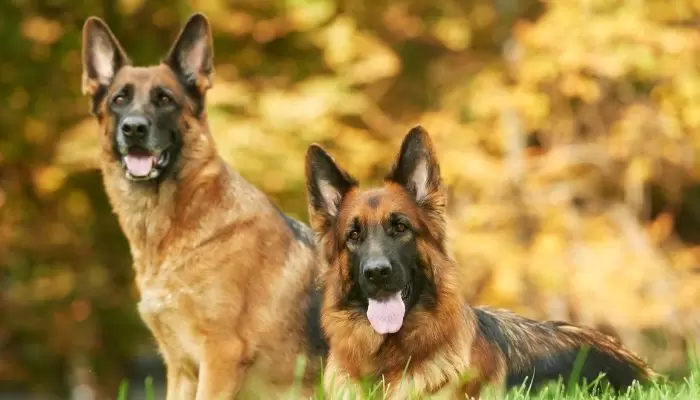
German shepherds, like all dogs, are descended from wolves. Howling is a common behavior in wolves, used for communication and territory marking.
In domestic dogs, this instinct can manifest itself in howling at night as a way to communicate with other nearby animals or to mark their territory. Sometimes, a dog may also howl in response to a sound they hear, such as a siren or song.
Additionally, German shepherds are known for being protective and vigilant dogs, so they may also howl at night as a way to alert their owners of potential threats or intruders.
It is important to note that excessive howling can be a sign of distress or boredom in dogs and may indicate a need for more attention and stimulation from their owners. Consulting with a veterinarian or trainer can help address any underlying issues causing excessive howling.
Possible Reasons
Some possible reasons German shepherds may howl at night include:
- The inherited instinct to communicate and mark territory
- Alerting their owners of potential threats or intruders
- Distress or boredom, indicating a need for more attention and stimulation from their owners
- Overall, it is important to monitor your dog’s behavior and consult with a professional if their howling becomes excessive or concerning.
How to Stop Shepherds Howling at night?
It can be difficult to eliminate a natural behavior like howling, but some steps can be taken to reduce unwanted howling at night.
- Provide ample exercise and stimulation during the day to help alleviate boredom or stress that may lead to excessive nighttime howling.
- Use positive reinforcement training to teach the “quiet” or “speak” command.
- Reduce outside noise that may trigger howling by closing windows or using white noise at night.
- Consult with a veterinarian or trainer for advice on addressing excessive howling behavior.
Ultimately, it is important to understand and respect the instinctual behaviors of your dog while also providing appropriate guidance and training. With patience and consistency, unwanted howling can be managed and reduced.
